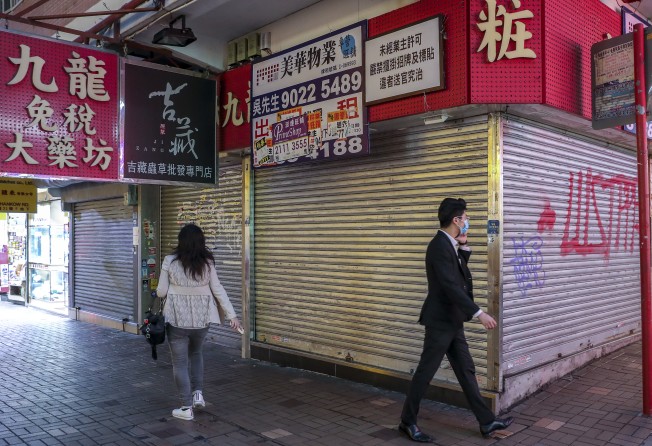Authorities must stay alert to keep Covid-19 from entering Hong Kong
- The threat of imported cases of the coronavirus from multiple sources, including from outside the mainland, has become more worrying

The mainland may be reporting fewer new infections of the coronavirus but it would be premature to interpret this as a downgrading of the risk to Hong Kong of cross-border contagion. Thanks to the spread of the Covid-19 epidemic through Asia and Europe and now the United States, this is far from the case.
Just when it seemed the Hong Kong authorities had stabilised the situation, the threat of imported cases of the disease from multiple sources outside China has become more worrying. It calls for the government to take active measures to prevent the expanded threat from triggering new locally transmitted infections. Moreover, a leading microbiologist warns that while the epidemic might wane during the summer, imported cases from the southern hemisphere might sustain it until next winter.
Understandably, the government has tried to strike a safe balance by imposing only those border controls considered imperative in the interests of public health, without undue disruption of personal and commercial interaction. As a result, entry to the city is barred only to non-locals arriving from South Korea and Hubei province in central China, the epicentre of the outbreak.
Mandatory quarantine applies to arrivals from mainland China, Iran, and three cities in northern Italy, plus Hongkongers returning from Daegu and Gyeongsangbuk-do in South Korea. Sensibly, from the weekend, Hong Kong now requires all visitors to make a health declaration. But it is time for the government to consider stepping up selective border measures, such as extending the quarantine requirements to cover travellers from all parts of Italy, which has recorded more than 7,000 cases, a similar number to South Korea, and intensifying health checks.
Concerns about imported cases are not confined to countries that have reported larger outbreaks. Executive Council member Dr Lam Ching-choi says the city might also need to impose restrictions on some countries with fewer confirmed cases where testing for and diagnosis of the virus may be limited. India, for example, has confirmed only a handful of cases, but six out of 20 members of a tourist group to India last month contracted the virus.
Travel warnings to Hong Kong travellers to minimise the risk of infection are an essential complement to the city’s border control measures. It is therefore good to hear that the government will assess risk factors such as the number, distribution and rate of increase of infections in particular destinations.
The government needs to review border biosecurity daily. We cannot, nor do we want to take draconian measures that shut travel down. But continual updating of targeted control measures is paramount to public health and the economy. This also sends the right message to intending travellers to Hong Kong – that they should reflect on whether their trip is risky or necessary in the circumstances.